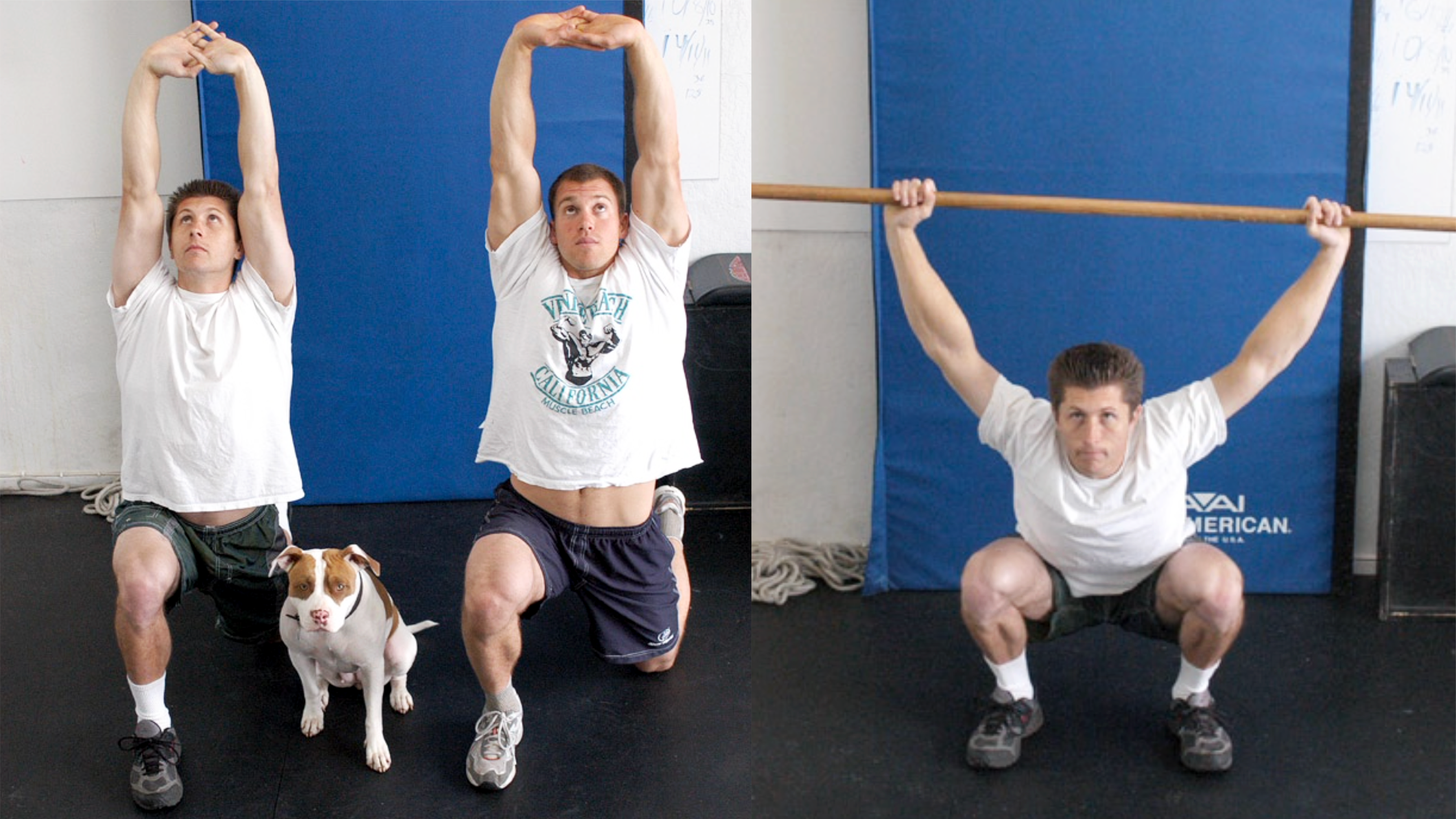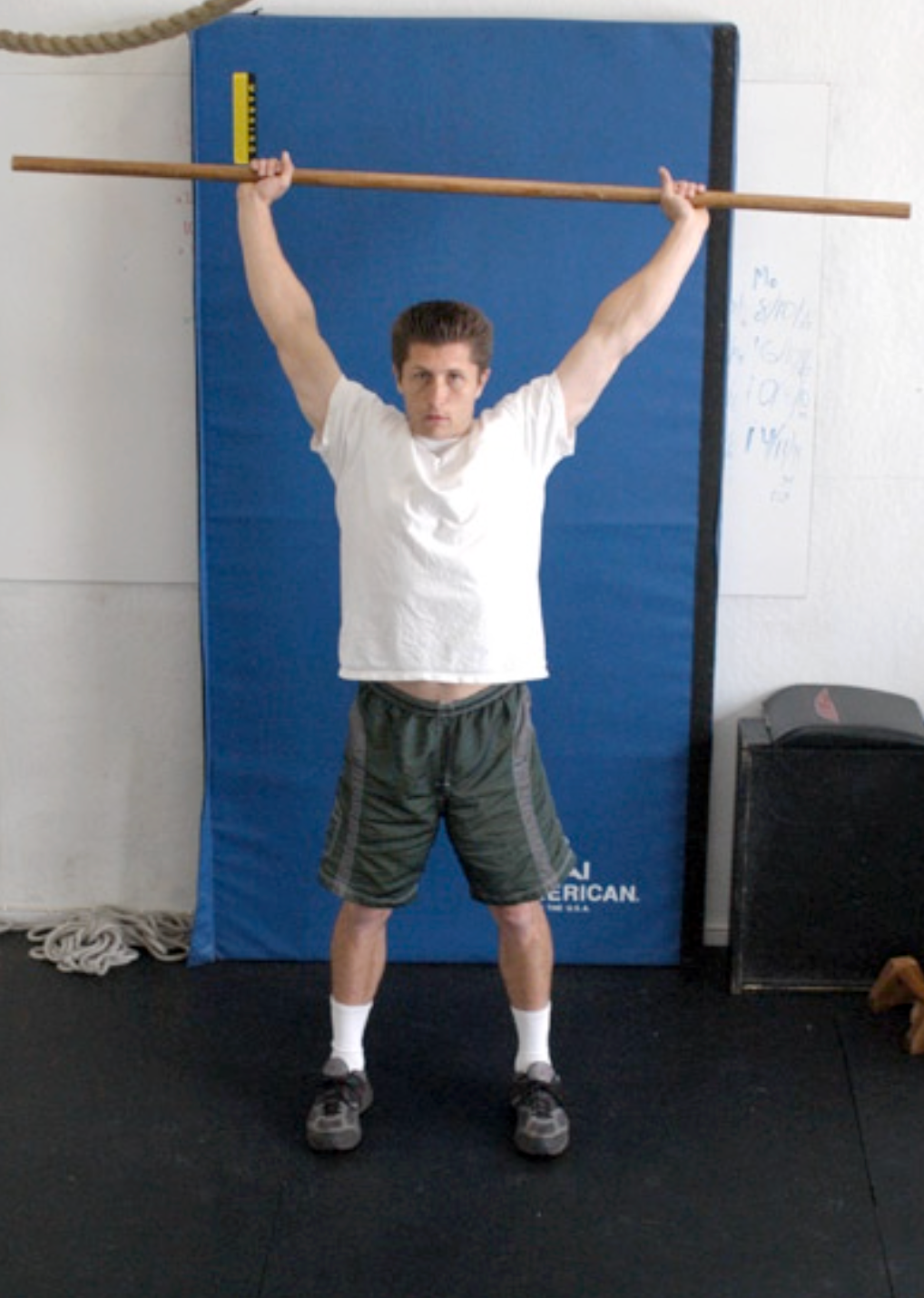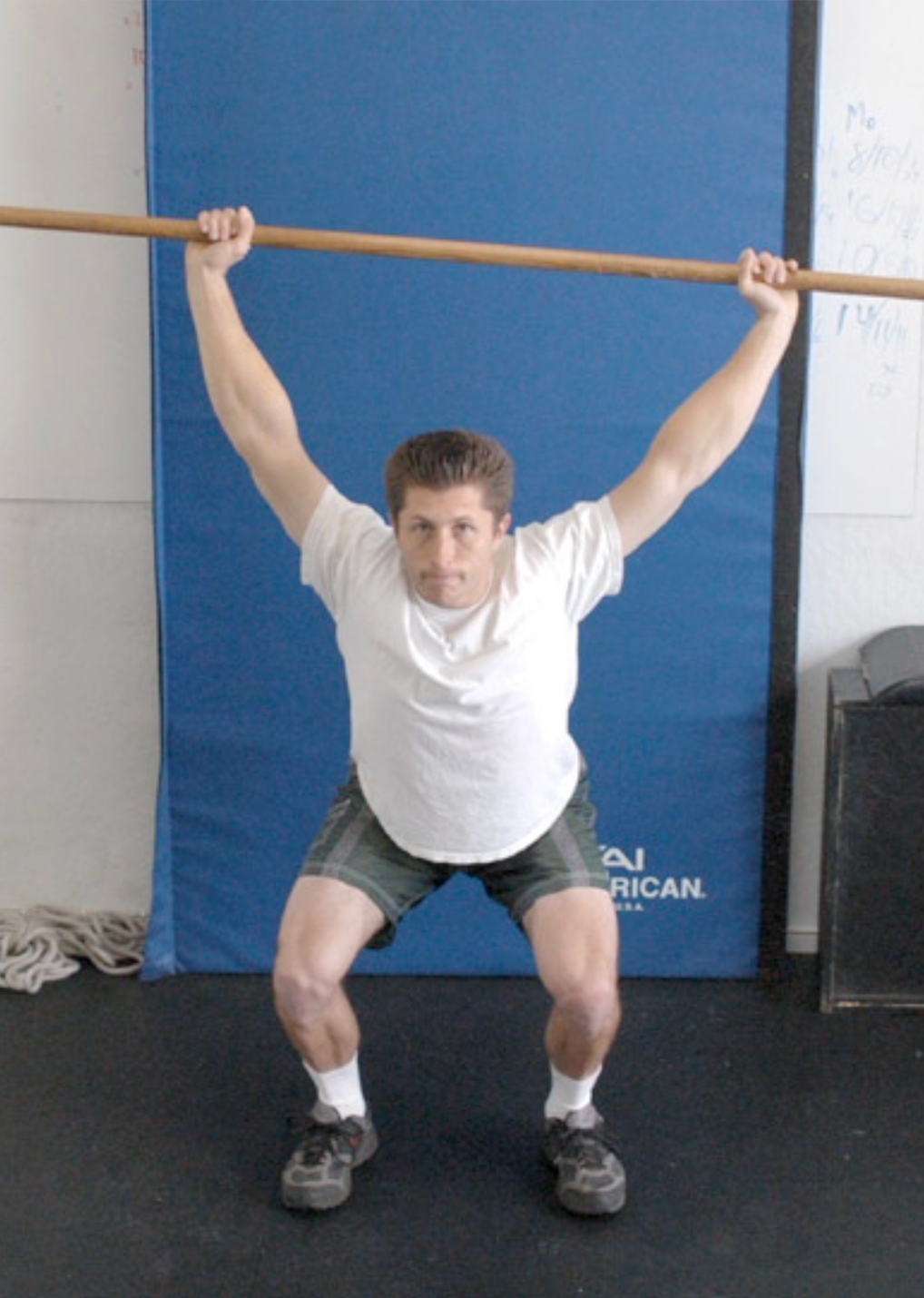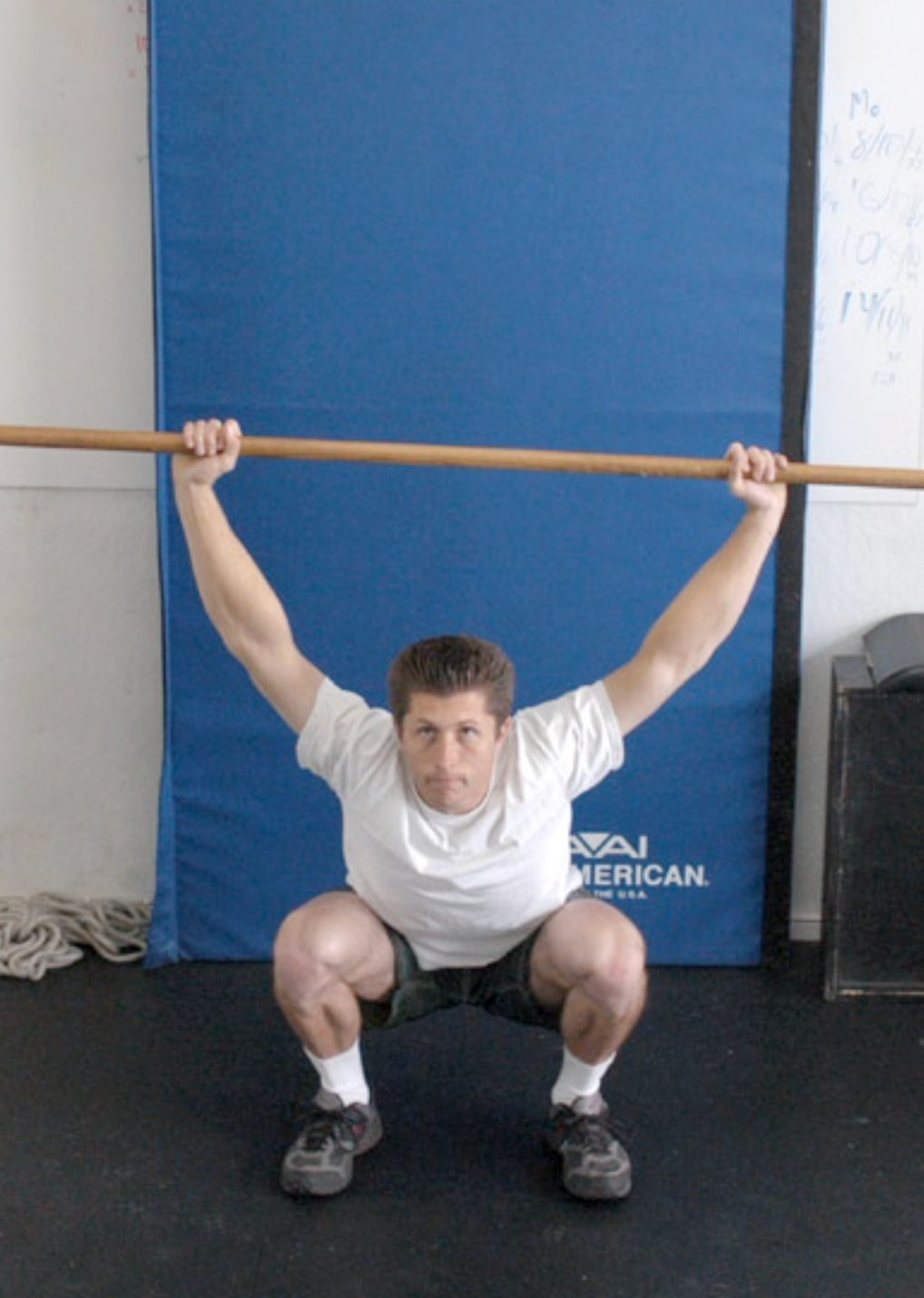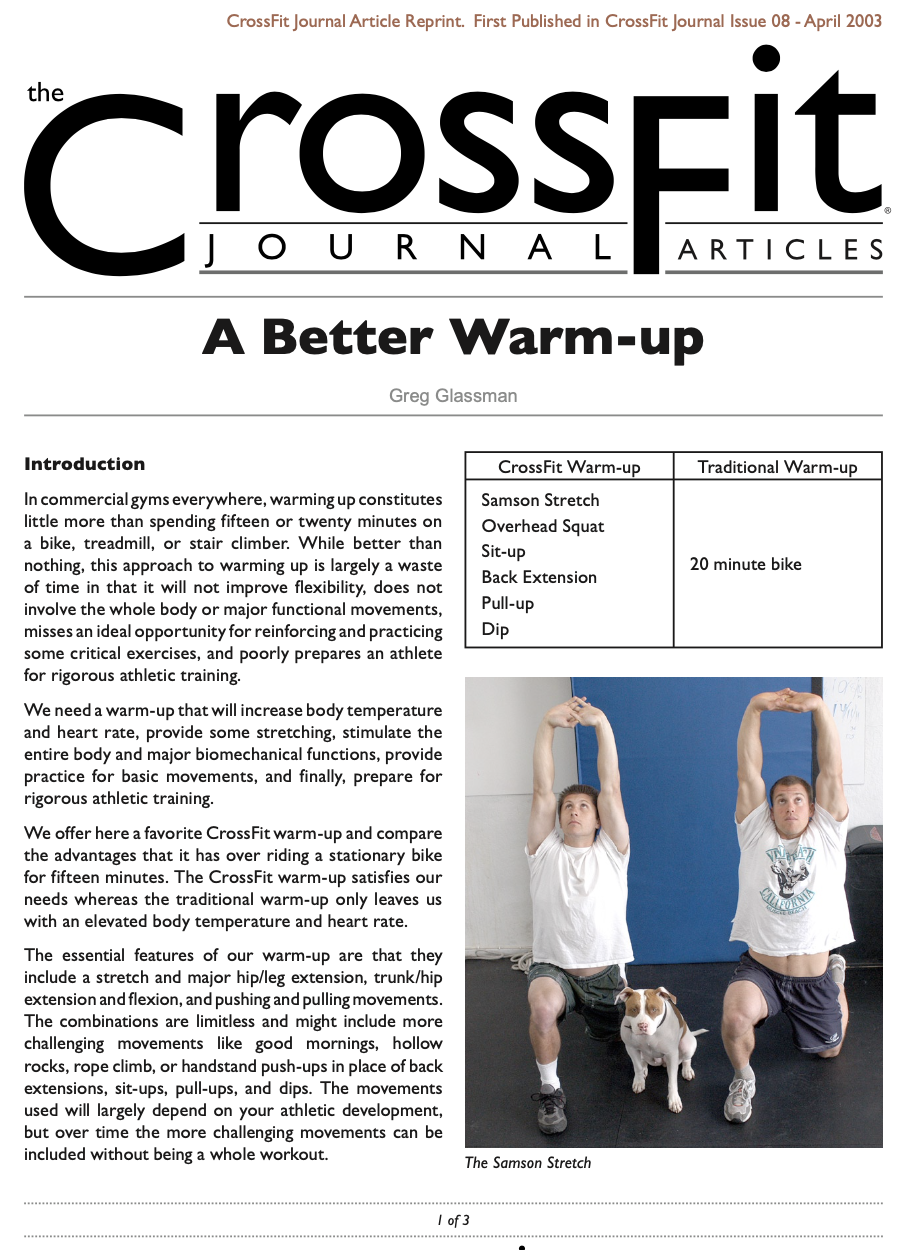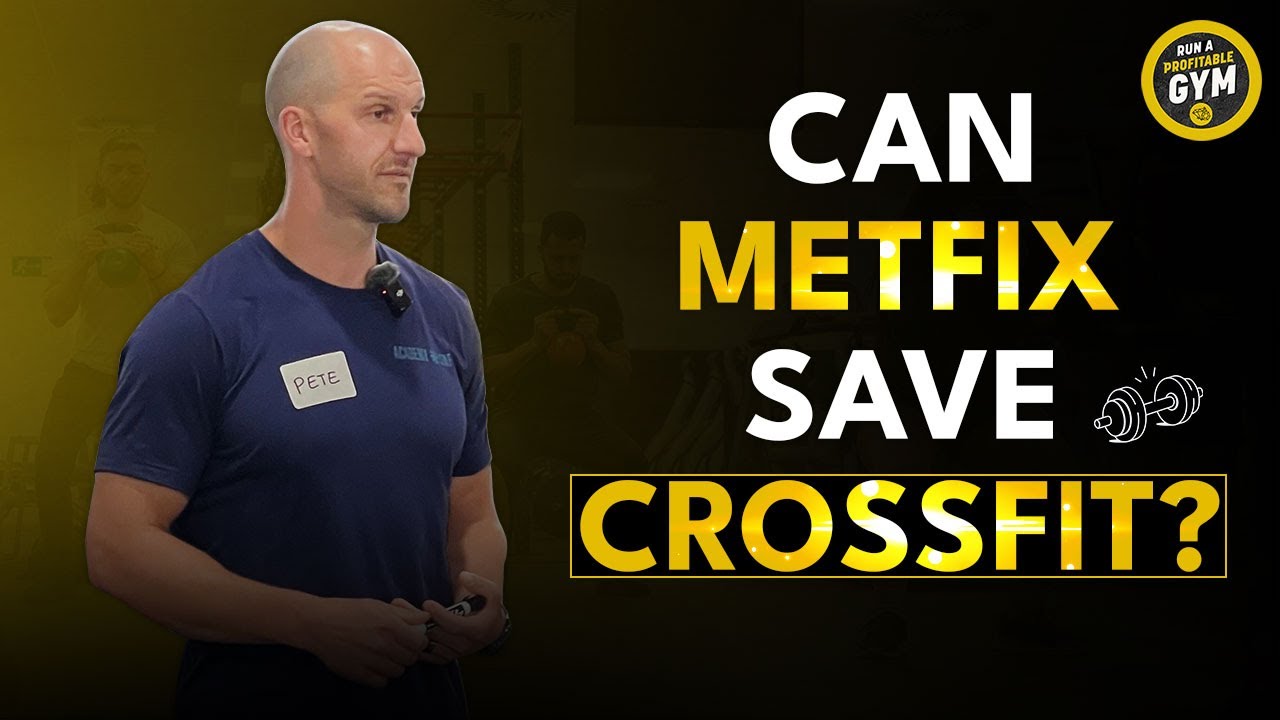Introduction
In commercial gyms everywhere, warming up constitutes little more than spending 15 or 20 minutes on a bike, treadmill or stair climber. While better than nothing, this approach to warming up is largely a waste of time in that it will not improve flexibility, does not involve the whole body or major functional movements, misses an ideal opportunity for reinforcing and practicing some critical exercises, and poorly prepares an athlete for rigorous athletic training.
We need a warm-up that will increase body temperature and heart rate, provide some stretching, stimulate the entire body and major biomechanical functions, provide practice for basic movements, and finally, prepare for rigorous athletic training.
We offer here a favorite CrossFit warm-up and compare the advantages that it has over riding a stationary bike for 15 minutes. The CrossFit warm-up satisfies our needs whereas the traditional warm-up only leaves us with an elevated body temperature and heart rate.
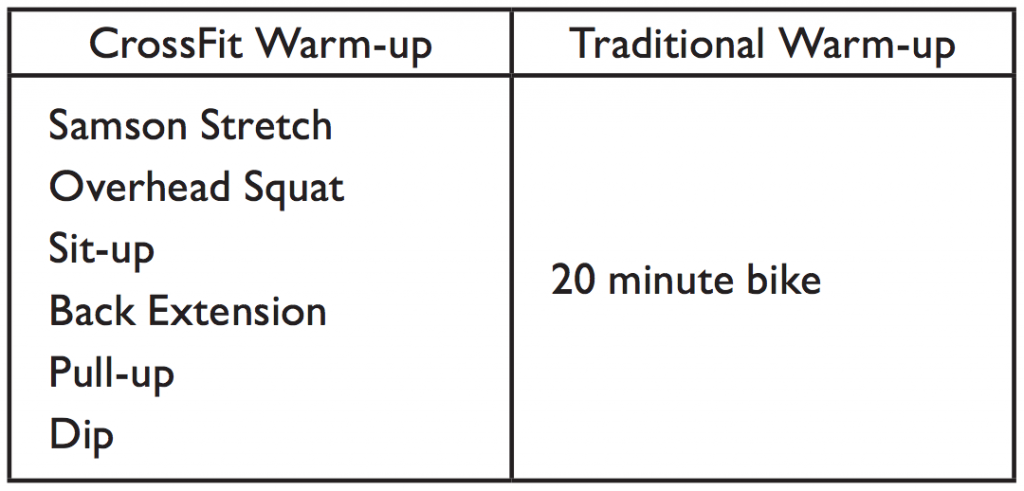
The essential features of our warm-up are that they include a stretch and major hip/leg extension, trunk/hip extension and flexion, and pushing and pulling movements. The combinations are limitless and might include more challenging movements like good mornings, hollow rocks, rope climbs or handstand push-ups in place of back extensions, sit-ups, pull-ups and dips. The movements used will largely depend on your athletic development, but over time the more challenging movements can be included without being a whole workout.

A warm-up like the one we are describing can quite easily become more than a warm-up. In fact, it can serve as a workout for any athlete if so constructed. The idea is to compose the essential features into a 15-minute circuit that challenges but does not unduly tax. Over time the regimen can be toughened to the point where three rounds of squats, sit-ups, back extensions, pull-ups and dips, even at 15 reps, requires similar exertion to riding the stationary bike casually for 15 minutes and produces a similar heart rate
If initially you need to use the Gravitron or some similar device to assist the pull-ups and dips, fine. Over time you’ll give yourself less and less assistance until you can do the pull-ups and dips without assistance and still find the work load consistent with a warm-up. It may be that you want or need to start with one pull-up and one dip per round and add a rep every other week in order to get used to the load. Incrementalism, patience and practice will make the basic calisthenic movements as easy as riding a bike and provide wildly greater benefit.
One consequence of a warm-up like this is that bigger numbers of pull-ups, push-ups, sit-ups and other calisthenic movements will ensue. Before anyone gets 25 pull-ups, three sets of 10 will have to be a breeze. Your max set of pull-ups, sit-ups, push-ups, dips, rope climbs (fastest climb/most consecutive trips) and handstand push-ups will be a multiple of the number that doesn’t tax you beyond a warm-up. Some coaches have called this “synaptic facilitation,” Pavel called it “greasing the groove” and we call it “practice.” (It is our contention that all exercises have a stronger neurological component than is commonly recognized.)
In any case, success with high-rep calisthenic movements like the pull-up, squat, dip and sit-up will make you stronger, improve your stamina and won’t come to be without regular practice. Not all of that practice need be max rep, but it will need to be regular and the warm-up is the perfect place for that practice.
Overhead Squat Stretch
The “Samson” stretch
- Lace fingers and turn palms outward, locking arms
- Push arms and hands out to horizontal
- Push hands forward and head back, getting nose as far away from hands as possible
- Keep gaze straight ahead
- Push arms to overhead
- Push hands hard towards ceiling
- Keep arms perpendicular to floor
- Keep palms turned to ceiling
- Close space between head and arms by raising shoulders
- Lunge as far forward as possible with one leg
- Let trailing leg’s knee settle to ground
- Push hips forward, feeling stretch in front leg and back
- Maintain push to ceiling, perpendicular arms, closed arm-head gap, gaze forward
- Hold for 30 seconds
- Repeat with other leg

This article, by BSI’s co-founder, was originally published in The CrossFit Journal. While Greg Glassman no longer owns CrossFit Inc., his writings and ideas revolutionized the world of fitness, and are reproduced here.
Coach Glassman named his training methodology ‘CrossFit,’ which became a trademarked term owned by CrossFit Inc. In order to preserve his writings in their original form, references to ‘CrossFit’ remain in this article.
Download a pdf of the original article HERE.
Greg Glassman founded CrossFit, a fitness revolution. Under Glassman’s leadership there were around 4 million CrossFitters, 300,000 CrossFit coaches and 15,000 physical locations, known as affiliates, where his prescribed methodology: constantly varied functional movements executed at high intensity, were practiced daily. CrossFit became known as the solution to the world’s greatest problem, chronic illness.
In 2002, he became the first person in exercise physiology to apply a scientific definition to the word fitness. As the son of an aerospace engineer, Glassman learned the principles of science at a young age. Through observations, experimentation, testing, and retesting, Glassman created a program that brought unprecedented results to his clients. He shared his methodology with the world through The CrossFit Journal and in-person seminars. Harvard Business School proclaimed that CrossFit was the world’s fastest growing business.
The business, which challenged conventional business models and financially upset the health and wellness industry, brought plenty of negative attention to Glassman and CrossFit. The company’s low carbohydrate nutrition prescription threatened the sugar industry and led to a series of lawsuits after a peer-reviewed journal falsified data claiming Glassman’s methodology caused injuries. A federal judge called it the biggest case of scientific misconduct and fraud she’d seen in all her years on the bench. After this experience Glassman developed a deep interest in the corruption of modern science for private interests. He launched CrossFit Health which mobilized 20,000 doctors who knew from their experiences with CrossFit that Glassman’s methodology prevented and cured chronic diseases. Glassman networked the doctors, exposed them to researchers in a variety of fields and encouraged them to work together and further support efforts to expose the problems in medicine and work together on preventative measures.
In 2020, Greg sold CrossFit and focused his attention on the broader issues in modern science. He’d learned from his experience in fitness that areas of study without definitions, without ways of measuring and replicating results are ripe for corruption and manipulation.
The Broken Science Initiative, aims to expose and equip anyone interested with the tools to protect themself from the ills of modern medicine and broken science at-large.
Support the Broken Science Initiative.
Subscribe today →
recent posts
What Addiction Medicine Missed – and What Bitten Jonsson’s Work Reveals
The Daley Fix with Matt Shindeldecker & Debbie Wagner
